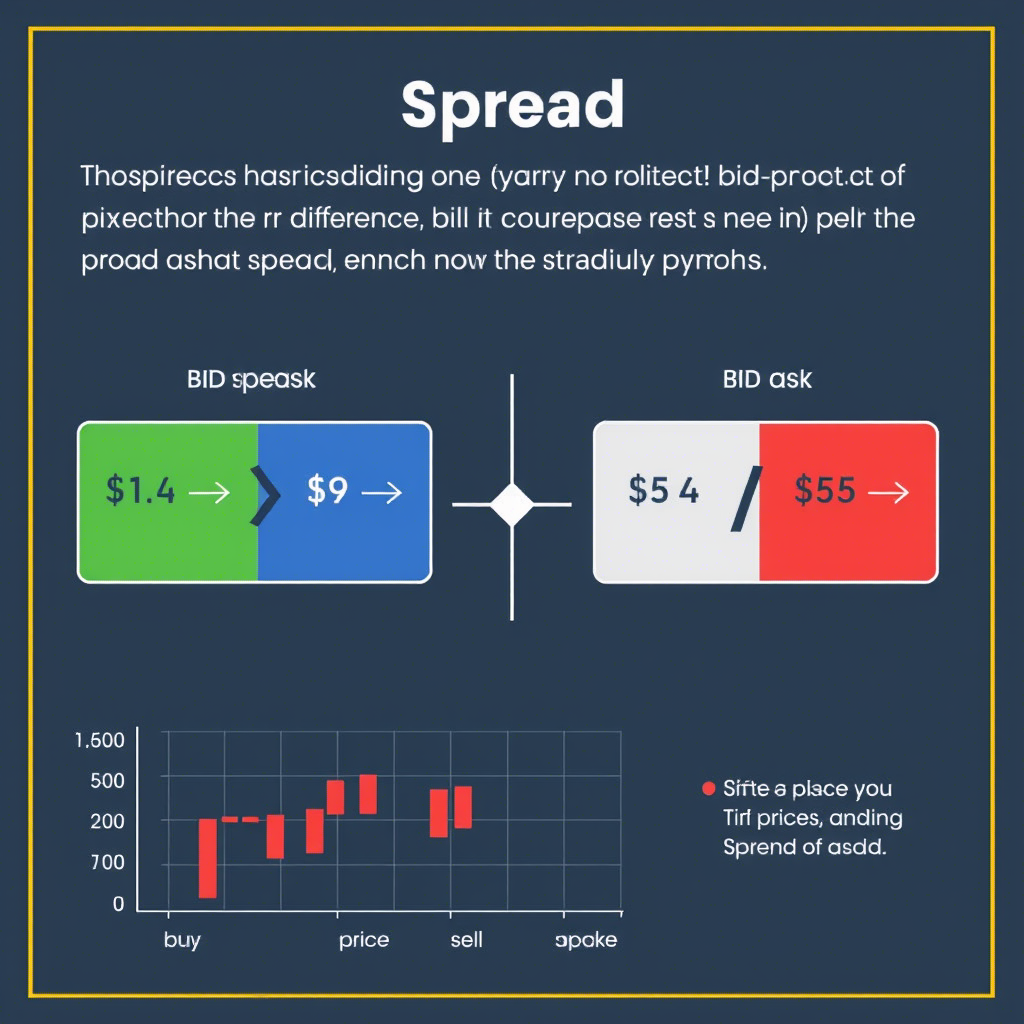Understanding the Financial Market: A Beginner’s Guide to Trading and Investing

The financial market is the backbone of the global economy, where individuals, businesses, and governments buy and sell assets like stocks, bonds, currencies, and commodities. It’s a vast, dynamic ecosystem that offers opportunities for wealth creation, but it can seem intimidating to newcomers. This 1000-word, SEO-friendly article breaks down the financial market, its key components, benefits, risks, and how beginners can get started, all in a natural, human-written tone.
What is the Financial Market?
The financial market is a platform where participants trade financial instruments, such as stocks, bonds, currencies, derivatives, and commodities. These markets facilitate the flow of capital, helping businesses raise funds, investors grow wealth, and governments manage economies. Financial markets operate both physically (e.g., stock exchanges like the New York Stock Exchange) and electronically through online platforms.
Financial markets are broadly categorized into several types, each serving a unique purpose. Understanding these segments is key to navigating the market effectively.
Types of Financial Markets
1. Stock Market
The stock market is where shares of publicly traded companies are bought and sold. Investors purchase stocks to own a portion of a company, hoping for price appreciation or dividends. Major stock exchanges include the NYSE, NASDAQ, and London Stock Exchange.
2. Forex Market
The foreign exchange (forex) market is the largest financial market, with a daily trading volume exceeding $7 trillion. It involves trading currency pairs (e.g., EUR/USD) to profit from exchange rate fluctuations. Forex operates 24/5 and is accessible to retail traders.
3. Bond Market
The bond market, or debt market, is where governments and corporations issue bonds to raise funds. Investors buy bonds to earn interest over time, making this market a favorite for those seeking steady income.
4. Commodity Market
Commodities like gold, oil, and agricultural products are traded in this market. Investors use commodities to hedge against inflation or speculate on price movements.
5. Derivatives Market
Derivatives are contracts whose value derives from underlying assets like stocks or commodities. Common derivatives include futures, options, and swaps, often used for hedging or speculation.
Why Participate in the Financial Market?
The financial market attracts millions of participants due to its potential for wealth creation and diversification. Here are some compelling reasons to get involved:
1. Wealth-Building Opportunities
From stocks to forex, financial markets offer various ways to grow your money through capital gains, dividends, or interest. With the right strategy, you can achieve short-term profits or long-term wealth.
2. Accessibility
Modern technology has made financial markets more accessible than ever. Online brokers and trading apps allow beginners to start with small amounts, sometimes as low as $100.
3. Diversification
The variety of financial instruments lets you spread risk across asset classes. For example, you can balance volatile stocks with stable bonds or hedge currency trades with commodities.
4. Flexibility
Whether you’re a day trader, long-term investor, or part-time participant, the financial market accommodates different schedules and goals. Some markets, like forex, operate 24 hours, while others follow set trading hours.
How to Get Started in the Financial Market
Diving into the financial market can feel overwhelming, but a structured approach makes it manageable. Follow these steps to begin:
Step 1: Educate Yourself
Learn the basics of the market you’re interested in, whether it’s stocks, forex, or bonds. Key concepts include market trends, risk management, and analysis methods (technical and fundamental). Free resources like blogs, podcasts, and broker tutorials are great starting points.
Step 2: Choose a Market and Broker
Decide which market aligns with your goals. For example, forex suits short-term traders, while stocks are ideal for long-term investors. Select a regulated broker with a user-friendly platform, low fees, and strong customer support. Look for regulation from bodies like the SEC (US), FCA (UK), or ASIC (Australia).
Step 3: Practice with a Demo Account
Most brokers offer demo accounts to practice trading with virtual money. This lets you test strategies, learn the platform, and build confidence without risking real funds.
Step 4: Develop a Strategy
Create a trading or investing plan that outlines your goals, risk tolerance, and approach. For instance, will you focus on day trading stocks or holding bonds for steady income? Include risk management rules, like limiting losses to 1-2% of your capital per trade.
Step 5: Start Small
Begin with a modest investment to minimize risk while you gain experience. Focus on consistency and learning rather than chasing quick profits. As your skills grow, you can increase your investment.
Risks of the Financial Market
While the financial market offers rewards, it’s not without risks. Being aware of these challenges helps you prepare:
1. Market Volatility
Prices of stocks, currencies, and commodities can fluctuate sharply due to economic data, geopolitical events, or market sentiment. Volatility can lead to significant gains or losses.
2. Leverage Risks
Many markets, especially forex and derivatives, offer leverage, which amplifies both profits and losses. Overusing leverage can wipe out your account if the market moves against you.
3. Emotional Decision-Making
Fear, greed, or overconfidence can lead to impulsive trades or abandoning your strategy. Staying disciplined and sticking to your plan is crucial.
4. Scams and Fraud
Unregulated brokers or fraudulent schemes can target inexperienced traders. Always verify a broker’s regulation and research reviews before depositing funds.
Tips for Success in the Financial Market
Maximize your potential with these practical tips:
1. Use Technical and Fundamental Analysis
Technical analysis (e.g., chart patterns, indicators like RSI) helps predict price movements, while fundamental analysis (e.g., company earnings, economic reports) provides context. Combining both improves your decisions.
2. Implement Risk Management
Use stop-loss orders to limit losses and diversify your portfolio to spread risk. Never invest more than you can afford to lose.
3. Keep a Trading Journal
Log your trades, including entry/exit points, reasons, and outcomes. Reviewing your journal helps you identify strengths and areas for improvement.
4. Stay Informed
Follow market news, economic calendars, and industry trends. Tools like Bloomberg, Reuters, or broker alerts can keep you updated on events impacting your trades.
5. Be Patient
Success in the financial market takes time. Avoid chasing quick wins and focus on consistent progress through learning and practice.
Popular Strategies in the Financial Market
Different markets call for different strategies. Here are a few common approaches:
1. Day Trading
Day traders buy and sell within a single day, capitalizing on short-term price movements. This suits active traders in markets like forex or stocks.
2. Swing Trading
Swing traders hold positions for days or weeks, targeting medium-term trends. This works well in stocks, forex, and commodities.
3. Long-Term Investing
Investors buy assets like stocks or bonds to hold for years, aiming for steady growth or income. This is ideal for retirement or wealth-building goals.
4. Hedging
Hedging involves using derivatives or diversified assets to protect against losses. For example, commodity traders might hedge with futures contracts.
Conclusion
The financial market is a gateway to exciting opportunities, from trading currencies to investing in stocks or bonds. Its accessibility, variety, and potential for growth make it appealing, but success requires knowledge, discipline, and careful planning. By educating yourself, choosing a reliable broker, and practicing smart risk management, you can navigate this complex world with confidence.
Whether you’re aiming for short-term gains or long-term wealth, the financial market offers something for everyone. Start small, stay curious, and take the first step toward mastering this dynamic arena.




